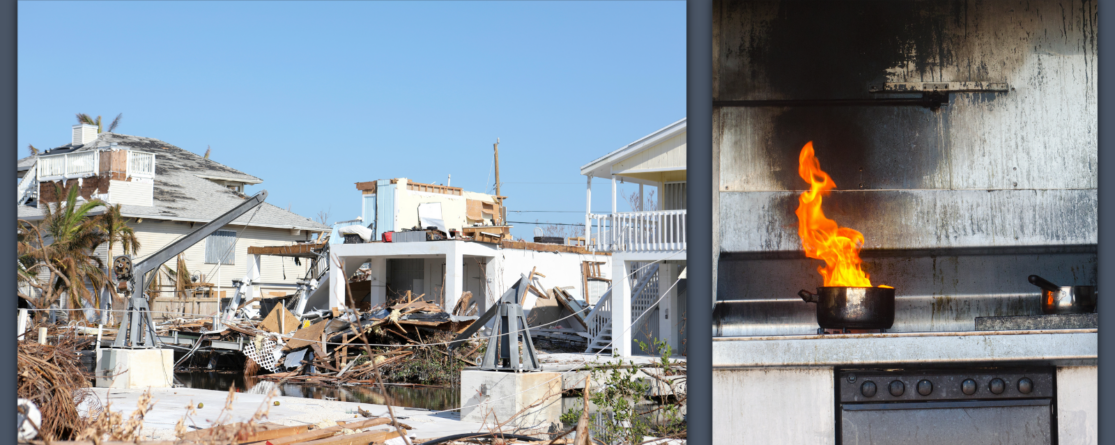Many people interested in becoming independent claims adjusters are familiar with catastrophe claims and the catastrophe claims business. In the minds of most, an independent adjuster and a catastrophe adjuster are one-in-the-same.
While it’s true that independent adjusters work on a large percentage of catastrophe or ‘CAT’ claims, many people don’t realize that independent adjusters also handle a large percentage of local or ‘daily’ claims.
First, let’s make sure we understand the difference between the two types of claims.
Catastrophe Insurance Claims
CAT claims arise out of some large-scale event, typically a natural disaster like a flood, hurricane, or hailstorm. When there’s a disaster like this, the massive spike in the number of claims generated in that geographical area overwhelms the capacity of local staff adjusters.
There are strict laws that require insurance claims be processed according to specific timeframes and deadlines. So when companies in an area get ten times the claims over a given period, they can’t simply take more time to process these claims. They still have to meet the deadlines, regardless of the number of adjusters or staff they have on-site to handle the claims. Failure to do so can result in severe penalties into the multimillions.
So insurance companies use the services of TPA’s or Independent Adjusting Firms, which in turn deploy independent adjusters to handle overflow claims to ensure deadlines are met. These adjusters are employed by the IA Firm, but act on behalf of the insurer (or insurers) who have contracts with that firm. When the situation is back under control, most of the independent adjusters are released, and the insurance carrier staff adjusters take care of the now-manageable number of remaining claims or claims in dispute. I say ‘most’ because a number of independent adjusters do end up remaining behind on clean-up duty (but more on that in a future post).
Daily Insurance Claims
Daily claims, on the other hand, are claims arising from losses that happen every day in every community throughout the country, but are not associated with a catastrophe; a pipe leak, a kitchen fire, a slip on a wet floor in a grocery store, and a back strained on the job are all examples.
It might seem that independent adjusters would not be needed for these kinds of claims because common sense suggests that local staff adjusters, working directly for the insurance company, could handle them. In reality, however, a similar principle applies; insurance companies must dispatch claims according to strict statutory deadlines, and keeping enough adjusters on staff to handle spikes would be bad business. They’d be twiddling their thumbs during the lulls and the company would be throwing money in the garbage.
One of the ways that insurance companies get around the legal employment issues of needing more or less adjusters according to volume is to contract with IA firms for these daily claim spikes. Basically, independent adjusters handle the overflow, thereby leveling out the claims volume for staff adjusters. Insurance companies of every size, local and national, utilize TPA’s of all sizes and flavors for this purpose. Some TPA’s even specialize in handling daily claims, avoiding CAT claims altogether.
What does this mean for independent insurance adjusters? It means that there’s more than just CAT adjusting available as a career path. This is cool news if – like me – you have a young family and extended travel is difficult.
Let me set some expectations though; if you’re planning on a career as an independent adjuster, you should expect to be ready and willing to travel at a moment’s notice. It’s a lucrative job for a reason; it’s not easy and you have to pay your dues. A can-do, heck-yes attitude is indispensable, especially in the beginning. But as you get established in the industry, your options will expand, and daily claims are one of those options.



